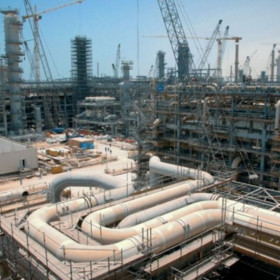Financing Gas Projects in the Eastern Mediterranean*

Securing funds for gas projects will be critical in developing the discoveries in the Eastern Mediterranean. Financing can be limited to the project itself (project finance) or can involve recourse to the project sponsors (corporate financing). Project finance has been gaining in popularity in recent years: almost 60 percent of the liquefaction capacity approved between 2009 and 2014 used some form of project finance, and several major gas pipelines completed recently to bring gas to Europe similarly involved project finance. Project finance is likely to be part of the financial toolkit in the region; Delek Group has already used it to finance its share of the Tamar project and Noble Energy is considering it for Leviathan. To secure project finance, the sponsors need to minimize risk to the extent possible and reassure lenders that the debts can be repaid by the project itself. In Israel, gas projects have several advantages: a strong resource base, competent sponsors, and a series of preliminary agreements to market the gas. Even so, recent history highlights several risks, especially repeated changes to the regulatory environment (tax, export, and competition policies). Lenders will need to be convinced that the environment for gas development will not change while loans are outstanding. Cyprus is earlier in the development cycle and its most immediate priorities will be to develop the Aphrodite field and to continue exploration, in light of some initially disappointing results and lower oil prices. Given the country’s financial position, project finance might make sense as it allows the state to participate. But the main uncertainties in Cyprus center on the ultimate size of the resource. The preferred solution at the moment seems to be an export pipeline to Egypt, if this proves commercially feasible. However, alternative gas monetization options, such as LNG, could again be considered if additional gas quantities are discovered. Project finance typically relies on a mix of private and public sector funds. Investors need to develop a strategy for securing funds from public institutions. Such a strategy for Cyprus and Israel could include:
- selling their gas to companies from countries that can provide such financing, for example importers from Japan or other nations in Asia (if part of Eastern Mediterranean gas resources is monetized as LNG);
- bringing in as project co-owners companies from countries that can mobilize public sector finance, for example large state-owned companies from Japan, Korea, or China;
- purchasing goods and services from countries that provide finance to exporters, for example hiring EPC contractors and/or procuring manufactured goods from companies based in the United States, Italy, and/or other countries with similar export strategies; and
- aligning project development and export strategies with European policy objectives to qualify for various sources of EU finance.
Governments and project sponsors need to make bankability, or the ability to secure finance, the top priority in their development efforts. The more they can make projects bankable, the greater the likelihood that this gas will be developed and the benefits will flow to the people of the region and beyond. The following recommendations addressed to the principal actors involved are intended to improve the prospects for securing the necessary finance to enable the region’s resources to be developed for the benefit of all involved.
- The companies involved in hydrocarbons exploration and development in the Eastern Mediterranean, with the support of their host governments where appropriate, should continue with their exploration activities, technical and market studies, monetization/ development planning, and exploratory discussions with potential buyers to reduce uncertainty in project development.
- Host governments, including regulators and other appropriate/relevant state bodies, should ensure regulatory certainty, including the tax, export, and competition regimes, and contract sanctity, particularly in Israel. Existing and potential new investors need to feel secure about the rules of the game over a long-term period — normally the project lifetime.
- Host governments and companies should work together to identify major financiers from the international financial community, and engage with them early in the development of a project. This will allow the governments in the region to understand — and possibly alleviate — problems that could impede development of the region’s resources.
- Host governments and companies should also engage with public financial entities, a major source of energy finance in recent years. Discussions with them should cover issues such as conditionality and how this might affect partner selection for the projects in question, and should include major global ECAs as well as European financial institutions and EU funding instruments.
- EU instruments should serve mainly as a “catalyst” facilitating the entry of other lenders.
- All stakeholders, both internal and external, should put project bankability in the Eastern Mediterranean at the heart of the policy discussion. Indeed, beyond technical issues, project development will predominantly be shaped by the ability of each proposed option to attract external funds.
Anastasios Giamouridis is a Senior Consultant at Pöyry Management Consulting (UK) Limited Nikos Tsafos is President and Chief Analyst at enalytica *This is part of a policy paper published by the German Marshall Fund






 3287.99
3287.99 1275.09
1275.09
